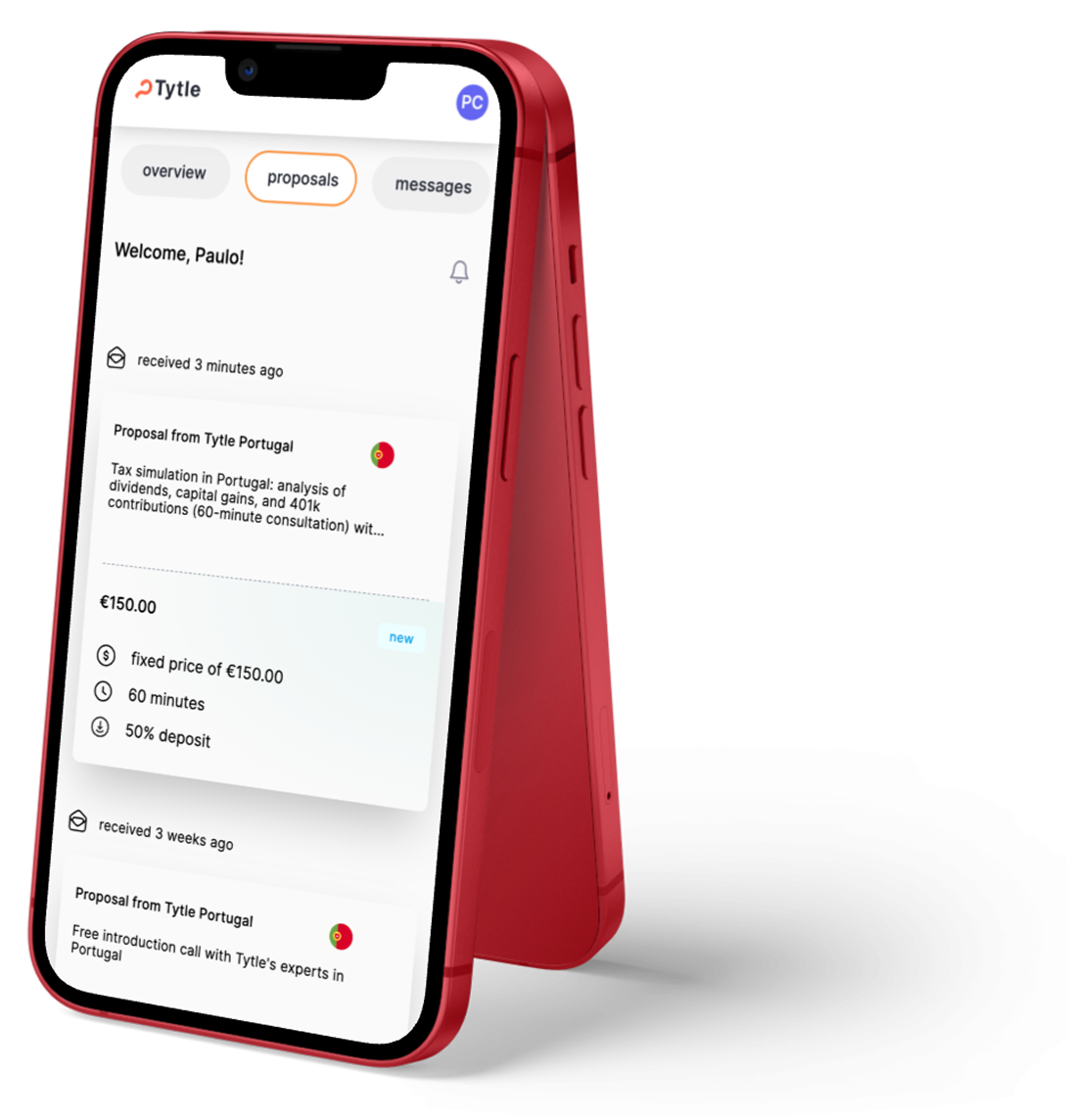

Expert Help with Taxes for Expats in Italy
Tytle specializes in taxes for expats in Italy, offering expert support with income tax filing, reporting requirements, local compliance, and much more. We help you manage Italian taxes for expats, identify tax breaks, and stay fully compliant while living, working, or retiring in Italy.







Italian Taxes for Expats: From Italian Tax Number to Filing, We Handle It All
Here’s a quick overview to help you with Italy’s income tax:

Your Italian tax number (Codice Fiscale) is required to rent, work, or pay taxes in Italy. We help expats get it quickly, without paperwork, headaches, delays, or confusion, so you can focus on settling in.
Working for yourself in Italy? Whether you freelance, run a business, or rent out Italian property, we guide you through VAT, quarterly tax filings, and the best setup for your situation, so you avoid surprises during tax season.
Italy has tax treaties with many countries, but proper tax filing is essential. We help expats avoid double taxation, apply available credits, and access tax breaks in Italy for foreigners, so you don’t overpay or miss key benefits.
- Consider that staying over 183 days makes you a tax resident in Italy.
- Review Italy’s tax treaties and plan asset transfers in advance.
- Avoid double taxation with early tax planning.
- You may need to deregister from your home country for tax purposes.
- File your dichiarazione di residenza within 20 days of arrival in Italy.
- Register at your local comune to activate tax residency.
- We assist with paperwork, getting your Italian tax number, and more.
- Timely registration ensures compliance with income tax in Italy for expats
- Italy’s tax return season runs from July to September, and deadlines are strict.
- Report worldwide income and claim any expat tax breaks you’re eligible for.
- We'll apply double taxation relief where treaties are in place.
- We manage your annual tax filings and ensure full tax compliance in Italy.
Why choose Tytle?
Italy’s tax rules for expats are complex and confusing. Tytle helps you handle your tax obligations easily, so you can focus on living and working in Italy without stress.
Affordable and transparent fees
Tytle has competitive and transparent fees. Gone are the times when tax experts billed hours without keeping you informed. Period.

Anywhere around the world
Tytle can take care of your tax filing wherever you go.

Quality tax help
Tytle offers the most competitive tax rates and the highest quality tax help.




Personalized tax advice
Get expert tax help based on your unique situation. Our chartered tax advisors help you maximize tax benefits in Italy for expats and avoid penalties.
Online tax filing
Italy’s income tax filing process can be overwhelming. We make it simple, from organizing your documents to filing your tax return.
Bookkeeping
An organized administration is essential to meet your tax filing obligations. Stay compliant with our bookkeeping services designed to fit your specific needs and budget in Italy.
International support
Does your tax situation involve more than just Italy? We’ve got you covered! Our team will bring in an additional tax advisor to ensure complete international tax compliance.
Dashboard
Enjoy the ease of a single dashboard to manage all your tax matters in Italy and beyond. Say goodbye to endless emails, phone calls, and scattered notes.
Archive
All your docs and correspondence are safely stored in your archive, easily accessible whenever you need them.
Customer testimonials
Tytle connects users with the right tax advisors
Wherever your journey takes you, Tytle’s network of tax experts is there to help - whether you’re in one country or crossing borders.
30+
50+
70%
Social proof to build credibility
Frequently asked questions
Expats who qualify as Italian tax residents must declare their worldwide income, including earnings from abroad, and comply with local filing deadlines. If expats do not qualify as Italian tax residents, they must still declare and (often) pay tax on income earned within Italy through an Italian income tax return. Residency is generally determined based on criteria like spending more than 183 days per year in Italy or having your main home or personal interests there. Registration with the Anagrafe (the municipal register) is also a factor, but it is not decisive on its own.
Yes, non-residents must pay tax in Italy on income earned within Italy, such as rental income or local employment. Tytle helps non-residents fulfill their Italian tax obligations and avoid penalties through accurate filings and local expertise.
Late filings usually lead to penalties starting around 30–60% of owed taxes plus interest. Higher fines (over 100%) apply only in cases of serious omission or tax evasion. Timely filing helps you avoid these costly penalties.
For employees and retirees using Form 730, the deadline is 30 September of the year after the income year. For self-employed or those filing Modello Redditi PF, the deadline is 31 October of the following year. Tax payments for Modello Redditi PF are generally split into installments due by 30 June and 30 November. Late filing within 90 days is allowed with minor penalties; after that, the return may be considered omitted with higher fines.
Yes, rental income is taxable, but expats may deduct certain expenses and sometimes opt for flat-tax regimes designed to simplify taxes on rental income.
Expats can deduct healthcare costs (19% of expenses over €129.11 per year) and mortgage interest on a primary residence (19% of up to €4,000 interest per year, which results in a maximum deduction of €760). Home office expenses are usually deductible only if self-employed. Other deductions like education fees and charitable donations are available to all residents.
Yes. Eligible freelancers in Italy can opt for the regime forfettario, which applies a flat substitute tax of 15% on taxable income (or 5% for the first five years if certain conditions are met). The regime simplifies tax reporting and is available only if annual revenues do not exceed €85,000.
Yes. If you are considered an Italian tax resident, you are taxed on your worldwide income, which includes remote work earnings from a foreign employer. The fact that your employer is abroad does not exempt you from Italian taxation. However, if your home country has a tax treaty with Italy, that treaty may prevent double taxation by allocating taxing rights and allowing foreign tax credits. You may also need to check whether your foreign employer has obligations in Italy, such as social security or payroll withholding.
Yes, foreign pensions are generally taxable in Italy if you’re a tax resident. Tax treaties may reduce or exempt some of this tax depending on your country of origin.
If working in Italy, you usually must contribute to the Italian social security system unless exempt under a bilateral agreement.
Yes, the Impatriate Regime offers significantly reduced taxation on income for eligible newcomers, lasting up to 5 years.
Affordable Tax Help for Expats in Spain and Abroad




